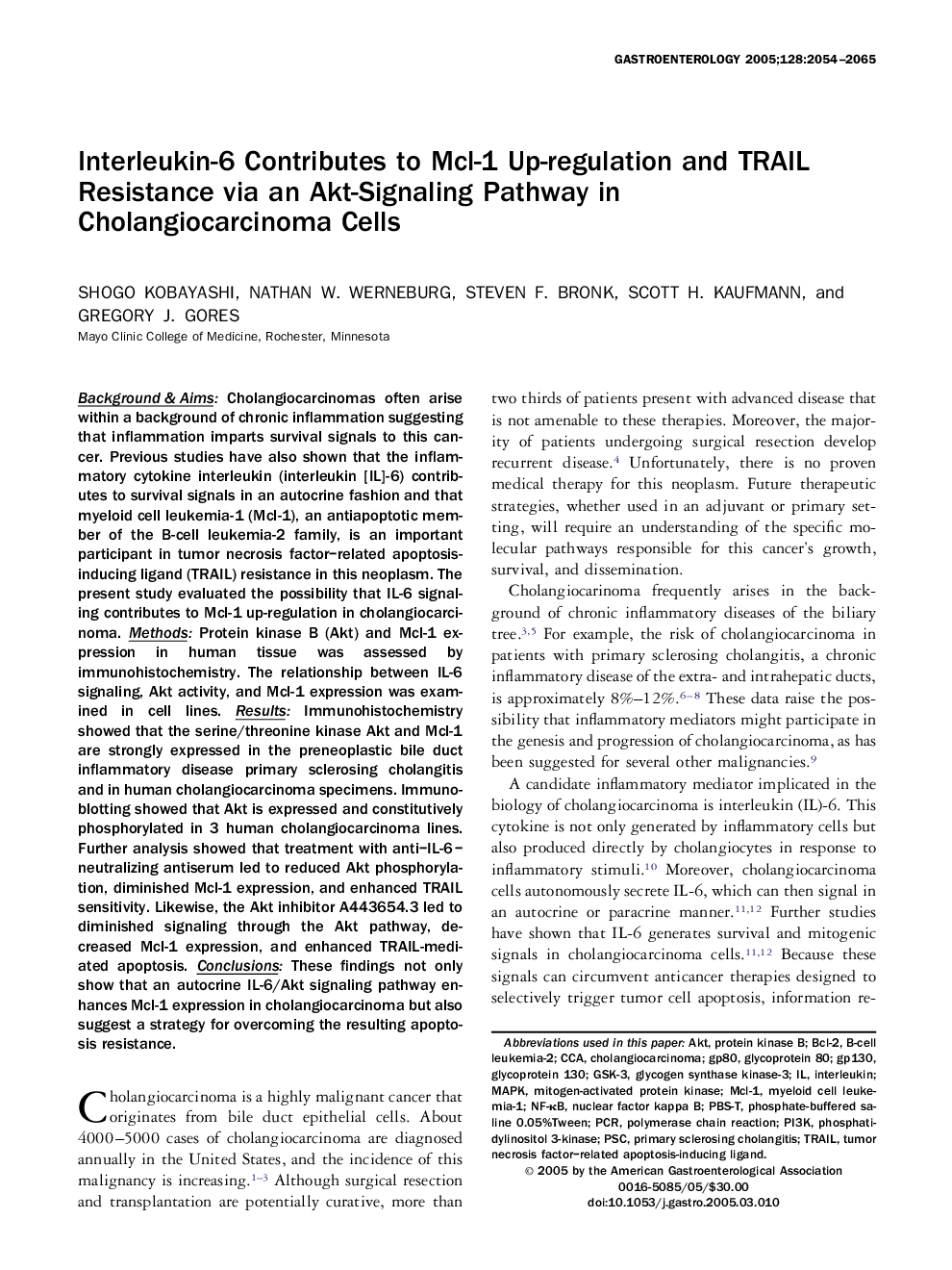| Article ID | Journal | Published Year | Pages | File Type |
|---|---|---|---|---|
| 3299740 | Gastroenterology | 2005 | 12 Pages |
Background & Aims: Cholangiocarcinomas often arise within a background of chronic inflammation suggesting that inflammation imparts survival signals to this cancer. Previous studies have also shown that the inflammatory cytokine interleukin (interleukin [IL]-6) contributes to survival signals in an autocrine fashion and that myeloid cell leukemia-1 (Mcl-1), an antiapoptotic member of the B-cell leukemia-2 family, is an important participant in tumor necrosis factor-related apoptosis-inducing ligand (TRAIL) resistance in this neoplasm. The present study evaluated the possibility that IL-6 signaling contributes to Mcl-1 up-regulation in cholangiocarcinoma.Methods: Protein kinase B (Akt) and Mcl-1 expression in human tissue was assessed by immunohistochemistry. The relationship between IL-6 signaling, Akt activity, and Mcl-1 expression was examined in cell lines.Results: Immunohistochemistry showed that the serine/threonine kinase Akt and Mcl-1 are strongly expressed in the preneoplastic bile duct inflammatory disease primary sclerosing cholangitis and in human cholangiocarcinoma specimens. Immunoblotting showed that Akt is expressed and constitutively phosphorylated in 3 human cholangiocarcinoma lines. Further analysis showed that treatment with anti-IL-6-neutralizing antiserum led to reduced Akt phosphorylation, diminished Mcl-1 expression, and enhanced TRAIL sensitivity. Likewise, the Akt inhibitor A443654.3 led to diminished signaling through the Akt pathway, decreased Mcl-1 expression, and enhanced TRAIL-mediated apoptosis.Conclusions: These findings not only show that an autocrine IL-6/Akt signaling pathway enhances Mcl-1 expression in cholangiocarcinoma but also suggest a strategy for overcoming the resulting apoptosis resistance.
